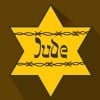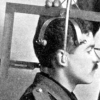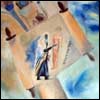Chabad-Lubavitch emissaries last week reburied the remains of 150 Jews murdered by Nazi forces in Kharkov, Ukraine. The ceremony, which entailed the transport of six coffins of bones to Drobitsky Yar eight kilometers away, came on the heels of a memorial service in Rostov-on-Don, Russia.
At the Russian memorial, Rabbi Chaim Friedman, co-director of Chabad-Lubavitch in the city, led the crowd in commemorating the murder 65 years ago of some 30,000 Jews, and thousands of others, in the biggest single atrocity associated with the Holocaust in Russia.
"The only thing we can do for those buried here is remember this horrific tragedy, when tens of thousands were wiped out in one day, and to pass their memory on to our children so that the Holocaust may never again be repeated, not for any people," said Yuri Rubinov, chairman of the Jewish community in Rostov-on-Don, who spoke after Friedman said Kaddish, the traditional mourner's prayer, and led a liturgy by the eternal flame at the Zmievskaya Balka Memorial.
At the memorial, Rabbi Ze'ev Wagner, representing the Federation of Jewish Communities of Russia, presented two "Righteous of Nations" medals to two non-Jews who risked their lives to save Jewish victims during World War II.
In Kharkov – where the Nazis murdered close to 30,000 Jews living in the city's ghetto between 1941 and 1942 – Jewish leaders were forced to rebury the remains of 40 women, 12 teenagers, 67 children and one infant, which construction workers found during excavations in advance of a building project on the site of the old ghetto. The Jewish community had protested the dig.
The Nazis evidently burned the bodies; some bones had bullet marks. Workers also found Hebrew prayer books and pages of Psalms alongside the bones.
The discovery seemed to suggest that these victims were those who could not make the Dec. 1941 forced march to Drobitsky Yar, where most of Kharkov's Jews were gunned down and left in a mass grave.
"Today is the first day of the Hebrew month of Elul, when we begin to blow the shofar," said Rabi Moshe Moskovitz, co-director of Chabad-Lubavitch in Kharkov and the city's chief rabbi, at the Aug. 16 funeral. "The [blowing of the] ram's horn is a sign that we have to wake up and return to G‑d. These 150 Jews lying here are also a sign that we have to wake up – the city of Kharkov and its citizens – and teach to the younger generation a lesson of tolerance and respect to others."
Moskovitz, who also head's the city's Chevra Kaddisha burial society that made the funeral preparations, announced that a Torah scroll would be written in the memory of those sacrificed in Kharkov: "The Torah will be a living memory and a sign for future generations," he said.
Both the atrocities in Rostov-on-Don and Kharkov faded from memory until the breakup of the Soviet Union allowed the revelation of what exactly the Nazis perpetrated following its invasion of Soviet lands in the early 1940s.
At the time, much of the world was focused on defeating the Nazis in western Europe, but documents recently uncovered in Chabad-Lubavitch archives in New York confirmed that upon his arrival in the United States, the Sixth Lubavitcher Rebbe, Rabbi Yosef Yitzchak Schneersohn, immediately began lobbying for assistance to Jews in the Nazis' path.
The Rebbe petitioned ambassadors and politicians in London and New York for relief packages to be sent to the Jewish communities in the western parts of what is today the former Soviet Union. His letters were co-signed by Rabbi Jacob Rosenheim, the then-president of the Agudath Israel World Organization. As the massacres in Rostov-on-Don and Kharkov proved, however, the effort ultimately proved fruitless.
In Kharkov, Arsen Borisovich Avakov, the region's governor, promised that such diplomatic efforts would never again be needed to ensure Jewish citizens' safety. He promised those in attendance that a genocide like the Holocaust would never happen again.








Start a Discussion